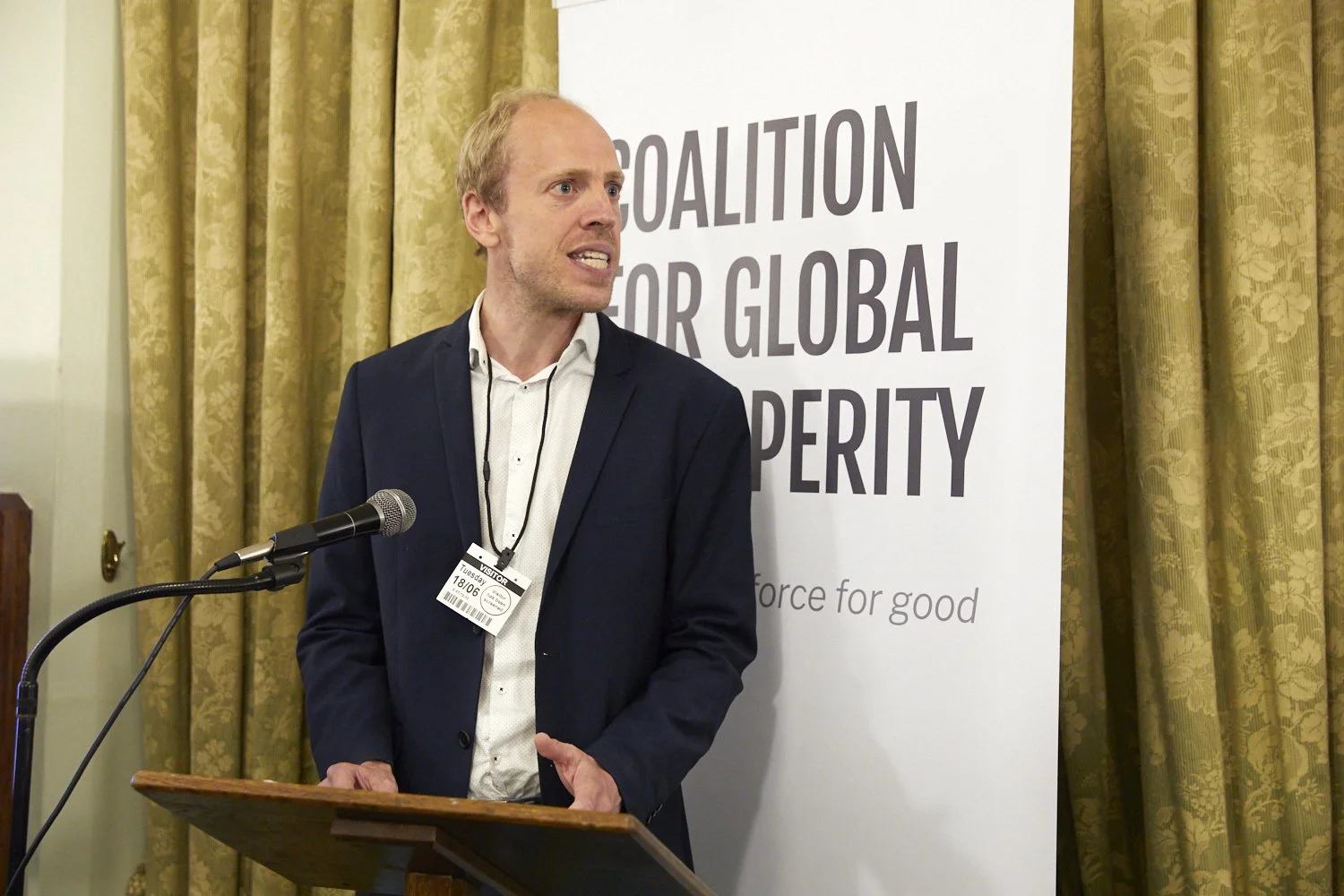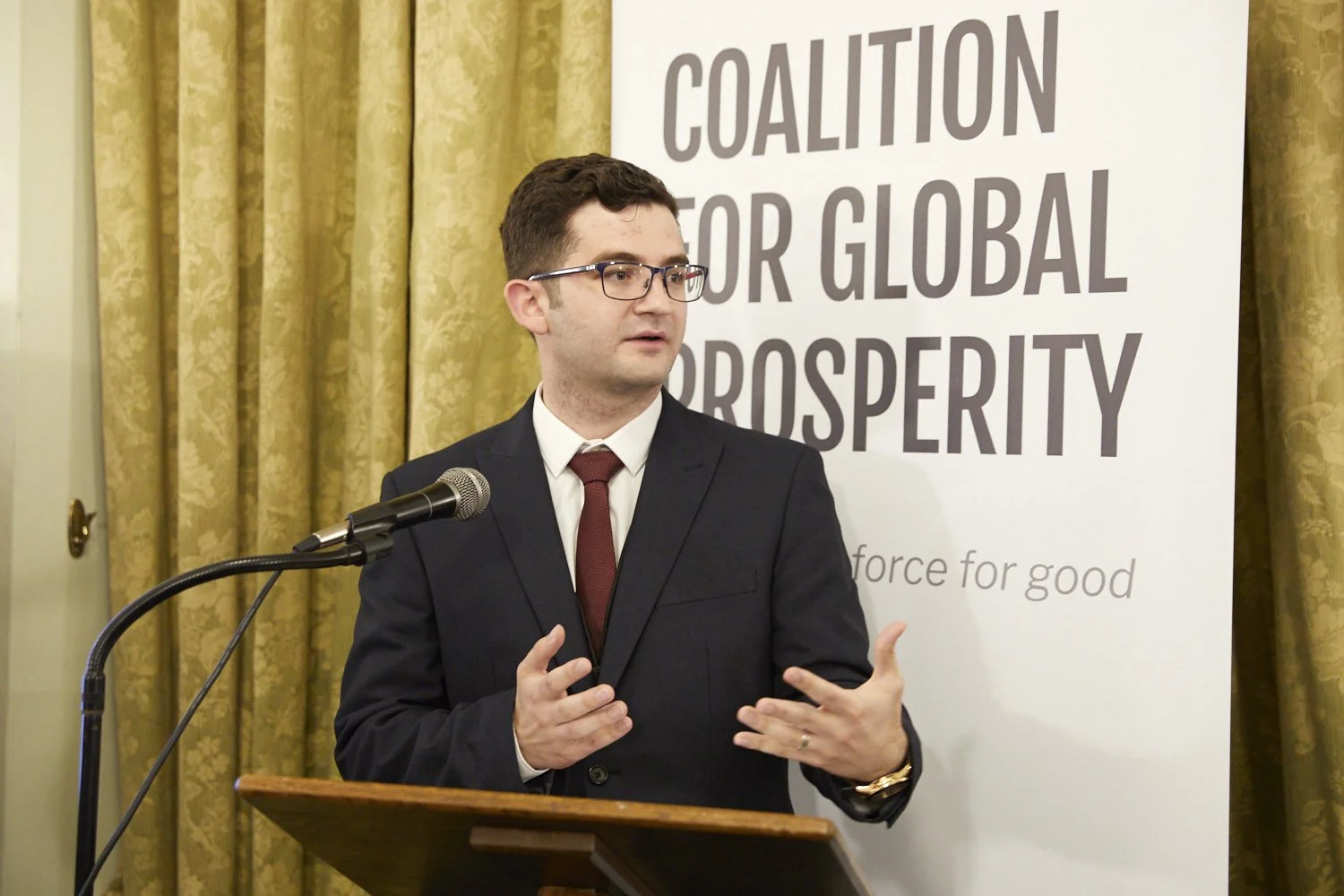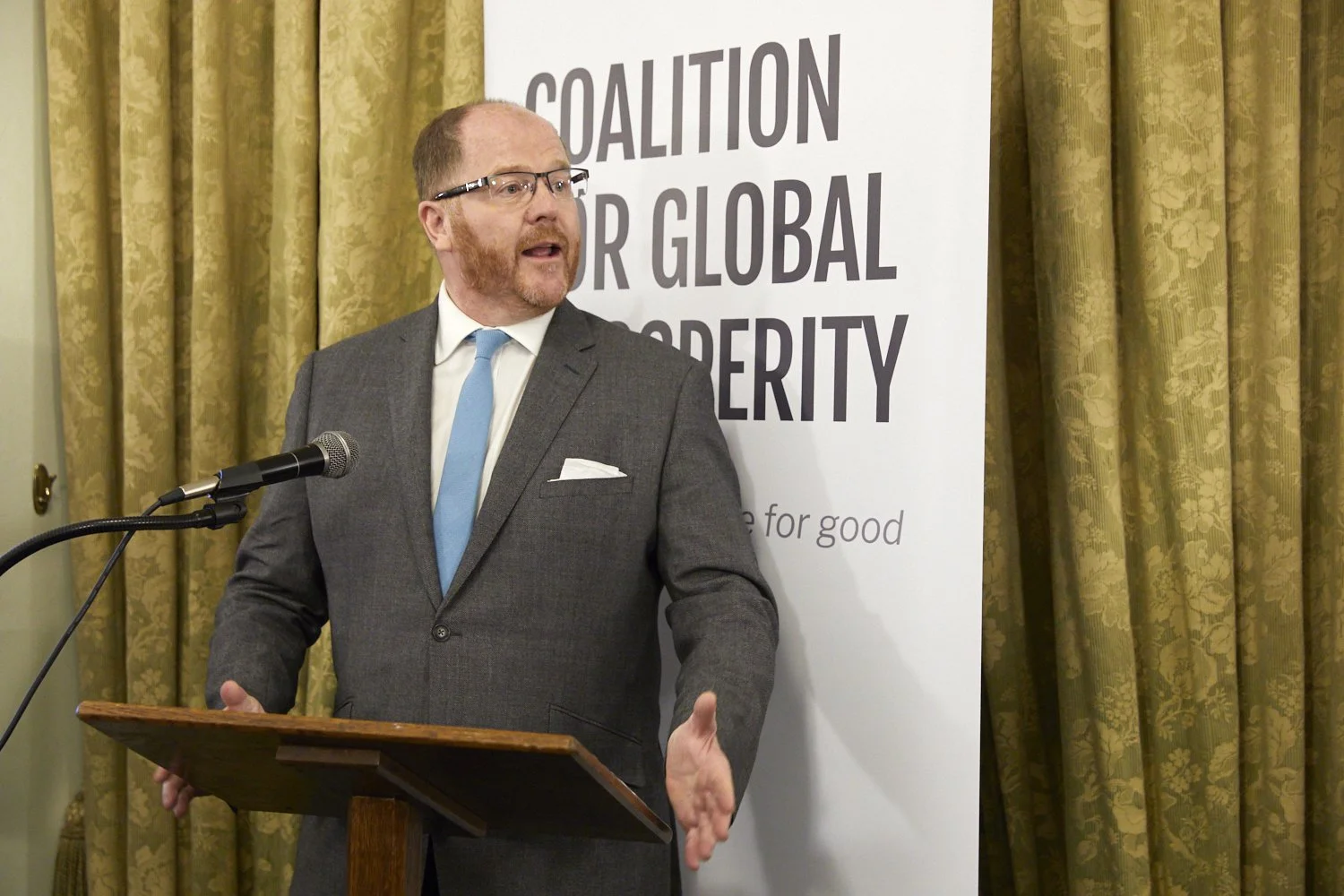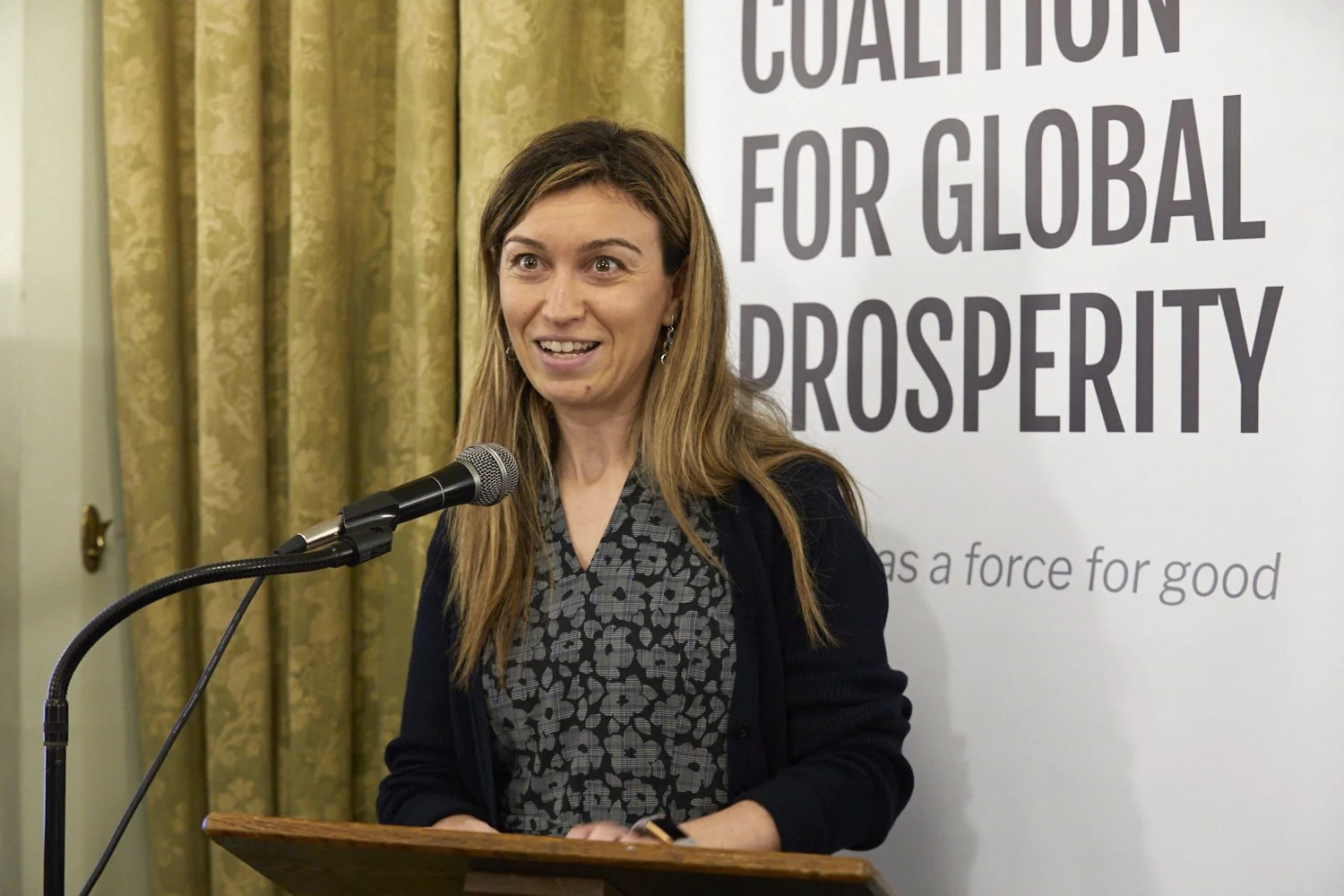The Coalition Hosts Global Britain: How the UK is Enabling Economic Resilience and Development for Refugees
On Tuesday 18th June, the Coalition for Global Prosperity marked World Refugee Week by hosting a packed room in parliament to showcase the leading work that the UK is doing to enable economic resilience and development for refugees across the world.
The Coalition heard from senior speakers including Eugene Amusin (Chair, Financial Inclusion Forum), George Freeman MP (Chair, APPG on Inclusive Growth), Laurie Lee (CEO, Care UK), Alexander Betts (Professor of Forced Migration and International Affairs), Micol Pistelli (Senior Financial Inclusion Officer, UNHCR) Amaf Yousef (Co-Founder, Network for Refugee Voices) and Theo Clarke (CEO, The Coalition for Global Prosperity).
The event, co-hosted by the Coalition, the Financial Inclusion Forum and the APPG on Inclusive Growth brought together parliamentarians, businesses and NGOs to discuss how financial inclusion for refugees creates resilient economies and inclusive prosperity across the globe.
The Coalition’s CEO, Theo Clarke, opened proceedings talking about why Britain and UK aid are leading the way in enabling economic resilience and development for refugee communities globally and the child refugees she met in Lebanon who were being supported with cash transfer programming to go to a school supported by UK aid.
Eugene Amusin, Chair of the Financial Inclusion Forum, opened the event by thanking guests and speakers, and emphasised the importance of parliamentarians, businesses and NGOs both at home and abroad working together to create inclusive economies that foster prosperity for everyone.
George Freeman MP, Chair of the APPG on Inclusive Growth then spoke about his visit to Lebanon in which he saw for himself how UK aid is supporting Syrian refugees. He went on to discuss how technology and businesses are developing groundbreaking innovations such as drought-resistant crops which are driving prosperity in subsaharan Africa, and why it is so important that the UK retains its 0.7% commitment.
The audience then heard from Oxford professor Alexander Betts, who noted the benefits that refugees bring to a host country, arguing that if provided with basic financial services refugees can bring prosperity not only to themselves but to their host communities.
Following Alexander was UNHCR’s Micol Pistelli. Micol demonstrated how Britain leads in delivering ‘catalytic funding’ that drives the growth of business overseas and empowers refugees globally. She referenced the potential in the untapped markets of Africa and Latin America.
The audience then heard from Founder of Network for Refugee Voices Amaf Yousef, who shared his experiences in UN advocacy work pushing to engage refugees in financial institutions’ policy making and overcome their countries’ financial sanctions.
Laurie Lee of CARE UK concluded the speeches, noting how British-led development drives not only financial but also social inclusion. He cited the example of how setting up savings accounts in Nigeria both drove economic growth and served to protect locals from Boko Haram, the Islamic State in West Africa.
After the speeches there was an audience Q&A, in which questions centred around investment in the developing world, financial services for refugees globally and the increasing use of mobile money in Africa. Guests and speakers were in agreement that we should all be enormously proud of Britain’s pioneering work to support refugee communities both in the UK and abroad.







